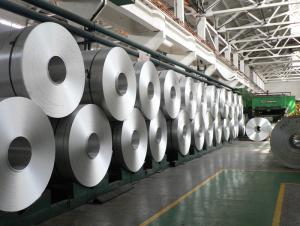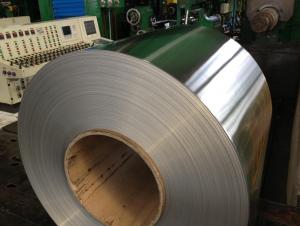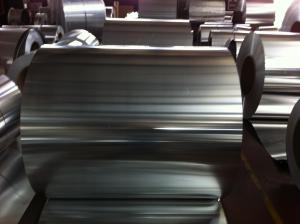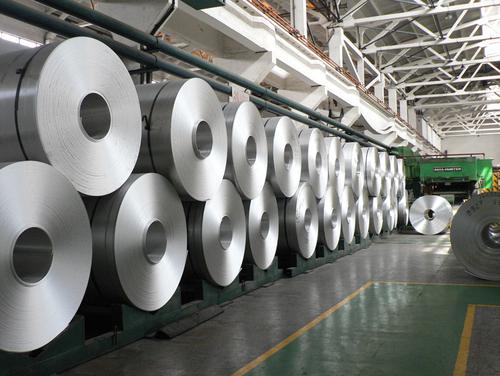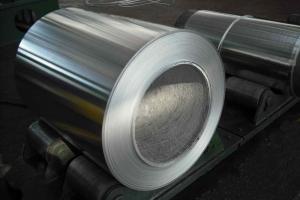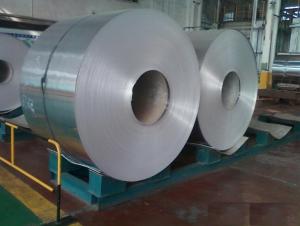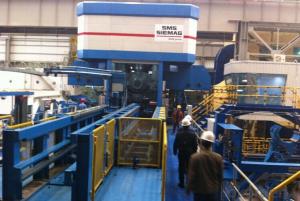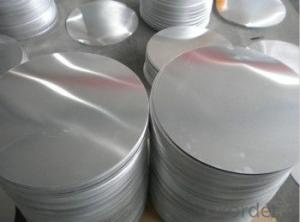Alcoa Aluminum Coils - Continuous Casting Aluminium Foil Stock in Coil AA8079
- Loading Port:
- China Main Port
- Payment Terms:
- TT or LC
- Min Order Qty:
- -
- Supply Capability:
- -
OKorder Service Pledge
OKorder Financial Service
You Might Also Like
1.Structure of Product Description
Continuous Casting Aluminium foil stock is one semi-finished aluminium material. This strip can be rolled down to all kinds of aluminium foil The alloy AA8079 is widly used in household aluminium foils. Because its price is much more competitive than other alloy, So many customers choosed aluminium material instead of AA3003.
2. Main features of the product
a.Competitive price---We have our own mills and can produce mill finished aluminium coils, so we can control the production cost better.
b.Professional after-sale service---We have more than 15 years exportation experience and you need not worry about the exporation problems.
c.Fast delivery time---We can control the delivery time within 35 days.
3. Image
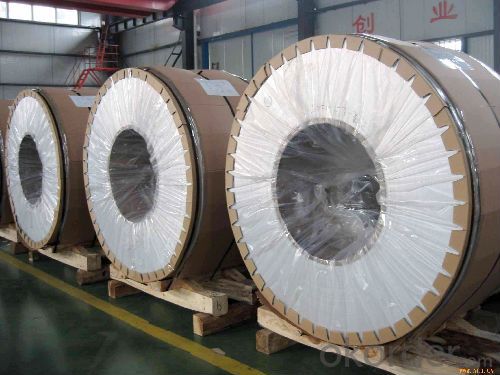
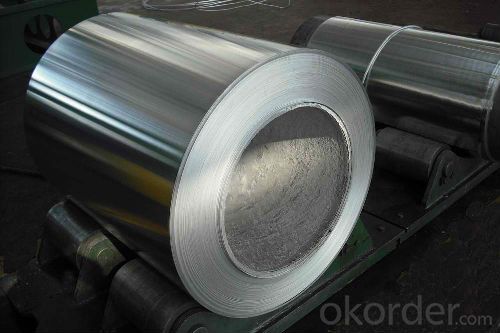
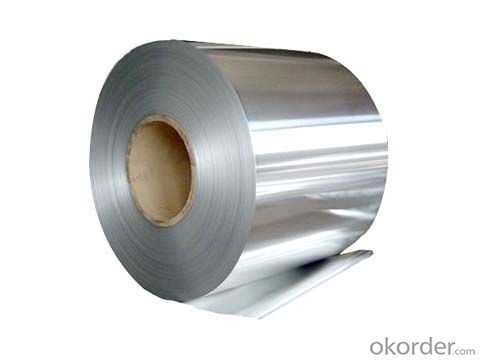
4. Products Specification
| Alloy | Temper | Final Thickness | Final Usage | Coil ID |
| AA8079 | H14 | about 50 micron | Household | 76mm or 152mm |
5.FAQ
What is the quality standard?
---Usually our standard is GB3880-2006
What is the largest width?
---It is 2300mm
What is the MOQ?
---Usually we can accept 80 tons.
- Q: Are aluminum coils suitable for solar reflectors?
- Yes, aluminum coils are indeed suitable for solar reflectors. Aluminum has high reflectivity, making it an ideal material to redirect and focus sunlight onto solar panels or other solar energy systems. Its lightweight nature and resistance to corrosion also make it a practical choice for solar reflectors.
- Q: Can aluminum coils be used in the construction industry?
- Yes, aluminum coils can be used in the construction industry. Aluminum is a lightweight and durable material with excellent corrosion resistance, making it suitable for various construction applications like roofing, siding, gutters, and HVAC systems. Aluminum coils are commonly used to create custom shapes and profiles that meet specific project requirements.
- Q: Is it possible to recycle aluminum coils without any loss in their quality?
- <p>Yes, aluminum coils can be recycled without damaging their quality. Aluminum is one of the most recycled materials due to its ability to be recycled indefinitely without any loss in quality. The recycling process involves melting the aluminum, which can then be reshaped into new coils or other products. This process is energy-efficient and environmentally friendly, as it requires significantly less energy than producing aluminum from raw materials. Recycled aluminum maintains the same strength, durability, and appearance as new aluminum, making it a sustainable choice for various applications.</p>
- Q: Can you create a tank, AFV, IFV etc. from aluminium or is this just a stupid idea that would kill everyone inside?
- Most military vehicles these days are made out of a super high grade strength linoleum. That way, if they're ever needed to be lifted out by a helicopter or some other flying vehicle, they're light enough. And it also is easier to repair damage and clean off blood stains as compared to other types of metal.
- Q: What are the advantages of using aluminum coils over other materials?
- There are numerous benefits to utilizing aluminum coils as opposed to alternative materials. To begin with, aluminum boasts a lightweight composition, thereby facilitating simpler handling and transportation. This characteristic also renders it more cost-effective, as it necessitates less energy for manufacturing and installation. Furthermore, aluminum exhibits a remarkable resistance to corrosion. It remains unaffected by rust, even when subjected to harsh environmental conditions, rendering it highly suitable for outdoor applications. The resulting durability ensures an extended lifespan and diminishes maintenance expenses in the long term. Moreover, aluminum coils excel in terms of heat transfer properties. Possessing a high thermal conductivity, they facilitate efficient heat exchange. This renders them ideal for crucial applications such as heating, ventilation, and air conditioning systems. In addition, aluminum serves as an eminently recyclable material. It can undergo multiple recycling processes without compromising its quality or performance. This not only curtails waste and contributes to environmental sustainability but also lowers production costs. Lastly, aluminum coils offer tremendous versatility in terms of design and customization. They can be effortlessly molded, shaped, and coated to meet specific requirements. This flexibility permits a wide array of applications across diverse industries, including automotive, construction, electronics, and aerospace. In conclusion, the array of advantages associated with aluminum coils, encompassing their lightweight nature, corrosion resistance, heat transfer properties, recyclability, and versatility, establishes them as the favored choice over alternative materials.
- Q: If this is true then how do I take my aluminums temperature without fear of breaking the themometer and get mercury all over it?
- It's easy - don't use a mercury thermometer. In fact, don't use a liquid thermometer at all. Go solid state and use a contact thermocouple thermometer - cheap as sh*t and accurate to 0.1C. Or, if the temp is high and relatively inaccessible, use an infrared or laser pyrometer.
- Q: metals an aluminum can is made of, cast aluminum, 6160 aluminum, sheet aluminum
- the aluminum is alloyed with various metals to change the characteristics of the aluminum the link below shows a table showing the various chemical/metals added to aluminum to make different alloys
- Q: How do aluminum coils contribute to the aesthetics of architectural designs?
- Architectural designs are significantly enhanced by the inclusion of aluminum coils, which offer a multitude of benefits. Firstly, their versatility in terms of shape and size is a key factor. This adaptability allows for the easy formation of aluminum coils into diverse shapes, making them suitable for a wide array of architectural applications. Moreover, the lightweight nature of aluminum coils contributes to their aesthetic appeal. When used in cladding or façade systems, they provide buildings with a sleek and modern appearance. This, in turn, adds a touch of elegance to the overall design, resulting in visually pleasing structures. Furthermore, aluminum coils offer a broad range of color options. Their coatability and ability to be painted provide architects and designers with an extensive palette of colors to choose from. This vast selection allows for the matching of a building's exterior with its surroundings or the creation of a specific mood or theme. The availability of various colors for aluminum coils opens up endless possibilities for customization and creativity in architectural design. Additionally, the durability and corrosion resistance of aluminum coils make them ideal for long-lasting architectural applications. They can withstand harsh weather conditions, ensuring that the building's aesthetics remain intact over time. This durability factor is crucial in maintaining the visual appeal of architectural designs, as it eliminates the need for frequent repairs or replacements. In conclusion, aluminum coils significantly contribute to the aesthetics of architectural designs due to their versatility, lightweight nature, color options, and durability. Their ability to be shaped into various forms, combined with a wide range of color choices, allows architects and designers to create visually stunning and customized buildings. The sleek and modern appearance of aluminum coils adds a touch of elegance to architectural designs, enhancing their overall aesthetics.
- Q: What are the different coil packaging materials used for aluminum coils?
- There are several different coil packaging materials commonly used for aluminum coils. These materials are designed to protect the coils during transportation and storage, ensuring they arrive at their destination in good condition. One of the most popular coil packaging materials for aluminum coils is plastic. Plastic packaging can come in the form of shrink wrap, stretch film, or plastic bands. Shrink wrap is often used to tightly encase the coils, providing a secure and protective covering. Stretch film, on the other hand, is used to tightly wrap the coils together, preventing them from shifting and potentially causing damage. Plastic bands are used to secure the coils together, offering an additional layer of stability. Another commonly used packaging material for aluminum coils is paper. Kraft paper or corrugated cardboard is often used to wrap and protect the coils. This type of packaging provides cushioning and prevents the coils from scratching or rubbing against each other during transit. Paper packaging is also easily recyclable, making it an environmentally friendly option. In addition to plastic and paper, steel strapping is sometimes used to package aluminum coils. Steel strapping offers excellent strength and durability, ensuring that the coils remain securely bundled during transportation. This type of packaging material is particularly useful for heavy-duty applications where extra protection is needed. Overall, the choice of coil packaging material for aluminum coils depends on factors such as the size and weight of the coils, transportation requirements, and the level of protection needed. By using the right packaging materials, aluminum coils can be safeguarded against damage and arrive at their destination in optimal condition.
- Q: How are aluminum coils used in the production of gutters and downspouts?
- Aluminum coils play a crucial role in the production of gutters and downspouts. These coils are used as the primary material to manufacture seamless gutters, which are known for their durability, longevity, and aesthetic appeal. To begin the production process, the aluminum coils are fed into a specialized gutter machine. This machine shapes the coils into the desired gutter profile, typically in the form of a long continuous piece. The coil is then cut into appropriate lengths to match the measurements of the gutter system required for a specific building or project. Once cut, the aluminum coil is then shaped and formed using various bending and folding techniques. This allows the coil to be transformed into the seamless gutter shape needed to efficiently collect and channel rainwater away from the roof and foundation of a building. The seamless design eliminates the risk of leaks and enhances the overall functionality of the gutter system. Additionally, the aluminum coils used in gutter production offer several advantages. Firstly, aluminum is lightweight yet sturdy, making it an ideal material for gutters and downspouts. It is resistant to rust and corrosion, ensuring the longevity of the gutter system even in harsh weather conditions. Furthermore, aluminum is highly malleable, allowing for customized shapes and sizes to fit the specific requirements of different buildings. In conclusion, aluminum coils are an integral component in the production of gutters and downspouts. They are used to create seamless gutters that are aesthetically pleasing, durable, and highly functional. The use of aluminum as the primary material ensures long-lasting performance, resistance to corrosion, and customization options for various architectural needs.
Send your message to us
Alcoa Aluminum Coils - Continuous Casting Aluminium Foil Stock in Coil AA8079
- Loading Port:
- China Main Port
- Payment Terms:
- TT or LC
- Min Order Qty:
- -
- Supply Capability:
- -
OKorder Service Pledge
OKorder Financial Service
Similar products
Hot products
Hot Searches
Related keywords
